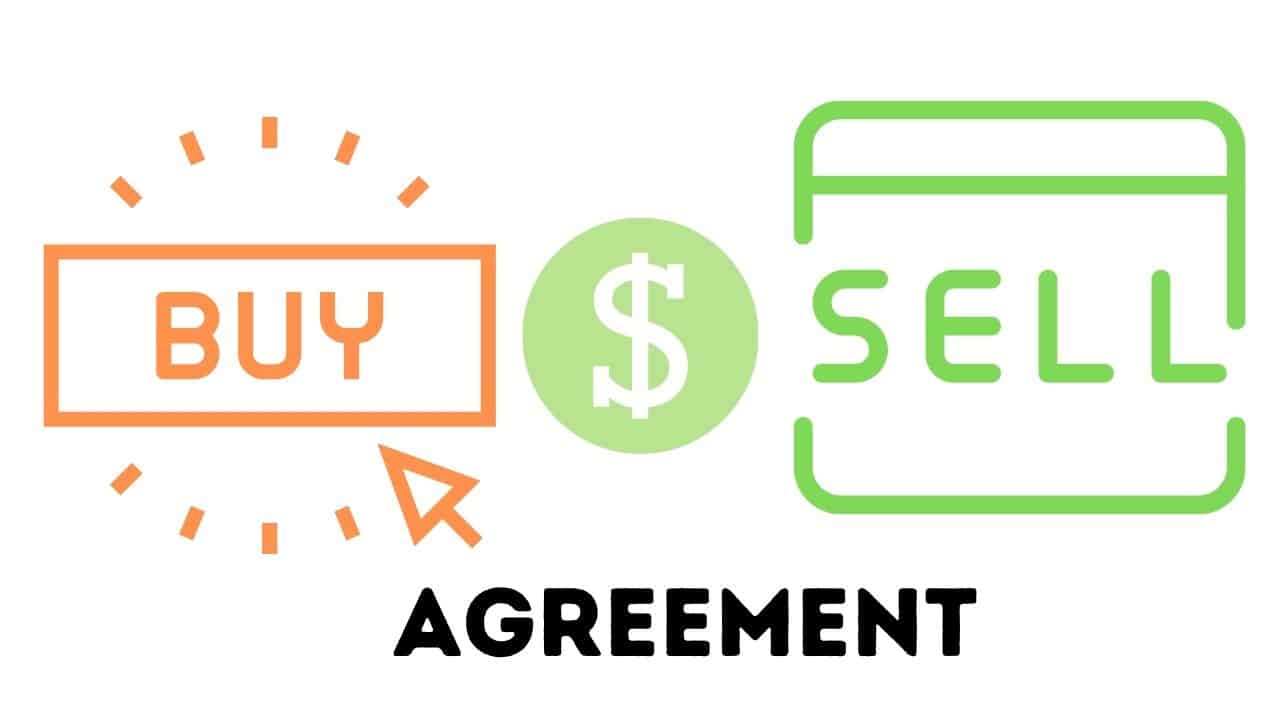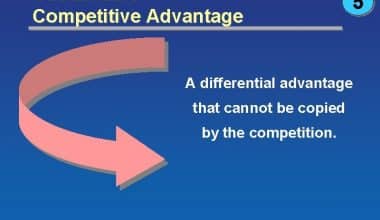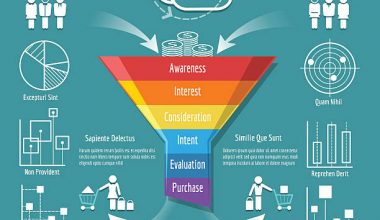One smart measure every entrepreneur should take to protect their business from future problem is Buy and Sell Agreement.
In this article, you will learn the basis of buy-sell agreement and how you can apply this concept to your business. This will benefit you a lot.
What Is Buy and Sell Agreement?
A buy and sell or buy-sell agreement is a legally binding contract that specifies how a partner’s interest in a company can be reallocated if that partner dies or leaves the company. Very often the sales contract provides that the available share is sold to the remaining partners or to the partnership.
How Does a Buy And Sell Agreement Work?
A sell agreement is a legally binding contract that establishes the parameters under which the shares of a company can be bought or sold. A buy-sell agreement is an attempt to avoid potential chaos in the event that one of an organization’s partners wants or has to leave the business.
You should consider a buy-sell agreement if:
- You and the other partners in the company want to control who can acquire a stake in the company.
- You want to describe what happens when a partner is disabled, retired, bankrupt, or dies.
- You want to establish a fair price for the company before disagreements between partners.
- You want to decide what happens to an owner’s interests when one of the partners gets divorced.
They want to require that anyone who inherits a stake in the business (by death or divorce) must sell their stake in the business. If you have not entered into a contract of sale in the above circumstances, your business can be divided by sale.
This means that a court can order the decommissioning and sale of commercial components to provide the financial value to which a new owner is entitled. Alternatively, a court could decide to award ownership to a new person in any of the above circumstances, giving that new person the same decision-making powers as existing partners.
Types of Buy and Sell Agreements
The most common types of buy-sell agreements include:
- The cross purchase agreement
Arrangements whereby the remaining owners buy the interests of the retired owners.
For example, if Felix and Joe did business together, Joe would be the owner and beneficiary of a life insurance policy in Felix’s life and Felix would be the owner and beneficiary of a policy in his(Joe) life.
If Joe dies, Felix will receive a tax-free death benefit.
In a cross-purchase agreement, Felix is hired to use the proceeds of the death benefit to buy shares in my Joe’s spouse business. Felix steps forward and Joe’s spouse has practically no business any more. This works well when there are only two partners.
- Company purchase agreement
Agreements in which the company acquires the interests of the departing owners. This works best for companies with more than two owners. Policies are owned by the company. A deceased partner’s shares are bought by the surviving spouse.
Before we move on to the next two types of buy and sell contracts, it’s important to mention that we get a lot of calls from manufacturers asking what type of contract customers should use to buy life insurance.
I almost always suggest agents don’t answer this, but provide information to their clients and allow the client’s legal advisor to provide the answer on whether they should cross-buy or entity buy or some other form of agreement.
- Wait and See
With this strategy, you are somehow applying the cross-buying method as well as the entity buy method.
In this type of arrangement, the arrangement would provide that the company would have the option to buy that owner’s stock if a partner dies or leaves the company. If the company does not, the remaining partners have the option to buy the outgoing owners’ shares.
The company or company could also acquire the shares of one of the partners. It’s kind of a two-way approach.
There are three different steps:
- The company can buy these shares.
- Otherwise the partners have the option to buy the shares.
- If the partners don’t buy, the stocks return to business. At this point, the agreement requires the company to buy the remaining shares only so that one partner has no shares outstanding.
You have some flexibility with this type of arrangement.
A frequently asked question is, “Where do you have life insurance in a wait-and-see arrangement?”
The mandatory purchase is conducted at the company level, so often the company will be the owner and beneficiary of these policies in order to meet the mandatory obligation to purchase the outgoing owner’s stock.
More often than not, it may be a partner who wants a bigger stake in the company who exercises this optional purchase of the late owner’s stock with their own personal capital.
One of the great things about working with LWT is that we have sample agreements for you. So, if you say, “We have a client who wants to wait for a purchase and sale agreement, but their attorney hasn’t written one and who doesn’t know exactly where to start,” you can provide them with a sample agreement.
This reduces billable hours as the client’s lawyer doesn’t have to start from scratch.
- The general company for the continuation of business operations
This is a slightly more complex strategy. We would form a partnership or LLC with multiple owners. Each partner would make an after-tax contribution to the general business partnership. That society would then buy a policy for each of them.
The good thing about this is that if one of these partners dies, you can easily distribute the policies to those partners with no additional taxes.
It’s kind of a mix of buy-sell planning and additional retirement planning for these partners.
What are the Key Elements of a Buy and Sell Agreement?
Every company has a unique structure. A company with multiple co-founders would have a more complicated sell contract. While a sole proprietorship is usually easier to write and run. key elements of a buy/sell agreement to consider include the following.
Triggering Events
When writing this agreement, it is important to clearly define what types of events will trigger a purchase.
Death of an Owner/Partner
Without a valid contract, an owner’s stake in the company would pass to their heirs. This may not be the ideal scenario for the company or the remaining partners. The contract should contain a provision stating what should happen to the owner’s participation in the business at the time of his death. This could include transferring the shares to family members for a purchase price. Or it could simply allow the company to buy back the late owner’s shares.
Ownership Divorce
Divorce can pose a particular risk to businesses as a marriage is often not amicably dissolved. Without a purchase / sale agreement, the court could transfer ownership of the shares to a former spouse, which could affect business operations. This segment of the contract would provide that shares in a company could be repurchased by the company rather than being permanently transferred to the ex-spouse.
Long-term Disability or Illness
In many companies, entrepreneurs make up a good part of the business value. The work they do has value and should be continued in their absence. If an owner is suffering from a long-term illness or has a health problem that permanently affects their ability to fulfill the requirements of their position in the company, they can include a clause to activate the initiation of the sell contract.
In this case, the contract provides a clear timetable: how long must the party be incapacitated for work before the purchase is completed? There may also be clauses that allow the owner to buy back his ownership interest if he can return at a later date.
Personal Bankruptcy
The sell contract must also contain a clause that allows the company to buy back shares if an owner has serious personal financial problems. In bankruptcy cases, creditors can track the actions of the owner in a company.
Internal Conflict Between Partners
Regardless of how successful the company is, partnerships can suffer from personal and professional conflicts. Sometimes these struggles cannot be resolved. With this agreement there is a set way to break the partnership that will suit all parties.
Retirement Specifications
It should be assumed that all partners will want to retire at some point. This clause would determine the retirement age. It can also include whether the shares are held by the owner or sold to the company. You may also want to include options for founding owners to stay part-time or as a consultant.
Presale
There should be a clause for owners to leave the company amicably if they decide to use other options. This clause would set parameters for the remaining owners to buy back those shares.
Payment structure
The payment structure for a sell contract specifies who is entitled to purchase shares and how these payments would be made. This clause would contain specific information, such as a percentage of the shares each remaining partner can buy. There are different options for this structure depending on the number of partners and the size of the company.
Buy-Sell Agreement Insurance
With a buy and sell contract financed by life insurance, the company or individual co-owners acquire life insurance policies for the life of each co-owner.
If you die, the company or co-owners will receive death benefits from your life insurance policies.
In addition, his family would receive an amount of money in payment for his interest in the company. This gives them financial support after your death and also brings stability to the company.
Why Is a Buy and Sell Agreement Important?
Some people refer to sell agreements as a “prenuptial” for businesses. This is a relevant comparison in the sense that a buy / sell agreement is usually drawn up at the beginning of a deal, when all parties are generally in agreement. This is the best time to sit down and discuss the best way to plan for potential potholes in the future.
Each jointly-owned company must draw up a sell contract as soon as possible. Before problems arise, describe what happens if an owner’s interest in the business becomes available (for whatever reason), who can buy the available portions, and what the fair purchase price will be.
READ ALSO: BUSINESS PROCESS OUTSOURCING(BPO): Overview, Examples, And Benefits







1 comment
Vielen Dank für diese Erklärung des Kaufvertrags. Gut zu wissen, dass dieser es auch regelt wenn ein Partner stirbt oder das Unternehmen verlässt. Ich bin aktuell dabei einen solchen Kaufvertrag bei Notar für mein Unternehmen auf setzen zu lassen.